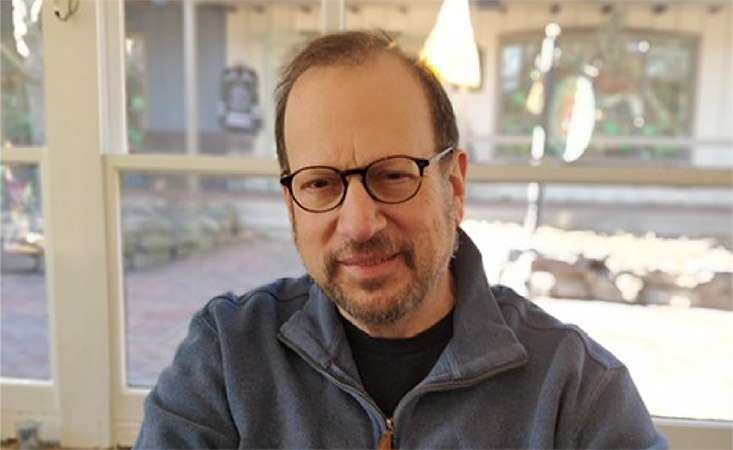
After being diagnosed with stage III pancreatic cancer in 2013, Dr. Ira Sharp went through chemotherapy and radiation therapy, followed by surgery. His tumor was removed along with the body and tail of his pancreas, as well as his spleen and gallbladder. Since the tumor had wrapped around a major artery, a bypass surgery restored circulation to his liver.
The complex procedure went well.
“I survived,” he said. “I was thrilled to be able to make it to my daughter’s wedding.”
Then, six months later, he found a lump in his neck. The cancer had spread – stage IV.
“I remember standing in the shower thinking to myself, ‘I had this golf ball-sized tumor in my belly and now I’ve got this thing in my neck. Am I going to get it, or is it going to get me?’”
He made a commitment in that moment that translated into action.
“I was 58 years old. I wasn’t ready to die,” he said. “I made a list of many clinical trials I had looked at, trying to figure out what might work.”
Since Ira had participated in two clinical trials early on, one for a new type of radiation therapy and another for his chemotherapy treatment, he knew they offered options beyond the standard of care. A physician himself, he consulted with the team of oncologists and other specialists he had brought together. Ultimately, he decided on a clinical trial at Fox Chase Cancer Center near his home in Philadelphia. Dr. Igor Astsaturov assured him that there was a path forward.
“When I first saw him, I was in tears,” Ira said. “He gave me a hug and said, ‘Ira. Of course there’s hope. There’s hope out there. There’s things we can do.’”
Ira enrolled in a Phase 1 clinical trial for a drug targeting the Wnt pathway, which plays a role in cancer cell replication. This was combined with a chemotherapy regimen of gemcitabine and Abraxane. Since the experimental drug was known to affect bone density, he underwent regular bone scans and had his urine and blood regularly tested. He tolerated the drug well.
“It is absolutely amazing,” he said. “Within a couple of months…that growth in the lymph node was gone.”
His CA 19-9 – a measurable biomarker that can signal cancer growth – also dropped exponentially.
He took his last dose after five years, in January of 2020. Although the specific drug Ira took is no longer available, other therapies targeting the Wnt pathway are in clinical trials.
Throughout his journey, Ira drew strength from his family.
“I have two grown kids and my wife, and I had a lot to live for,” he said. “I do think that the positive attitude helped. Maybe it didn’t cure the cancer, but it did help.”
He also did a lot of research.
“You’ve got to have hope,” he said. “But you also have to do your homework. You have to have allies with you who are knowledgeable, who can help guide you and navigate the system.”
Now retired after more than 30 years as a physician, Ira volunteers for PanCAN in its Philadelphia affiliate, serving as that guide for others. He offers suggestions, empathy and hope.
“I’ve had people around the country call me,” he said. “I’ve shared my personal experiences about navigating clinical trials, finding doctors and dealing with pancreatic cancer and nutrition. I point them in the direction of PanCAN. I encourage them to get their tumor sequenced.”
There’s power in that knowledge -- and it adds up over time.
“Everyone should consider a clinical trial if they’re eligible,” he said. “Even if you yourself don’t benefit, you’re offering a legacy to other people, and it may be somebody in your own family. Somebody somewhere eventually is going to be part of a breakthrough.”
Any treatments, including clinical trials, mentioned in this story may not be appropriate or available for all patients. Doctors take many things into account when prescribing treatments including the stage and type of cancer and the overall health of the patient. Contact PanCAN Patient Services for personalized treatment options.















